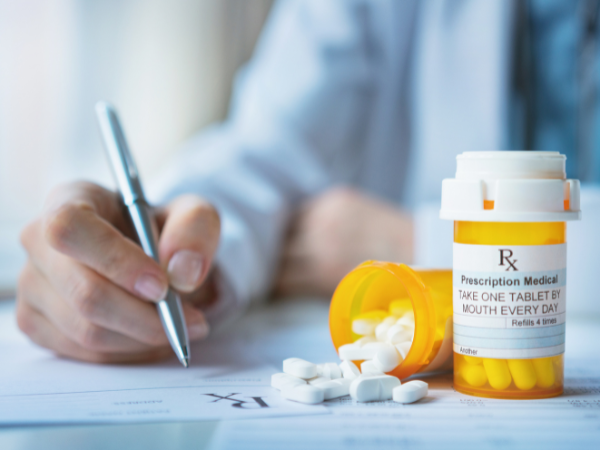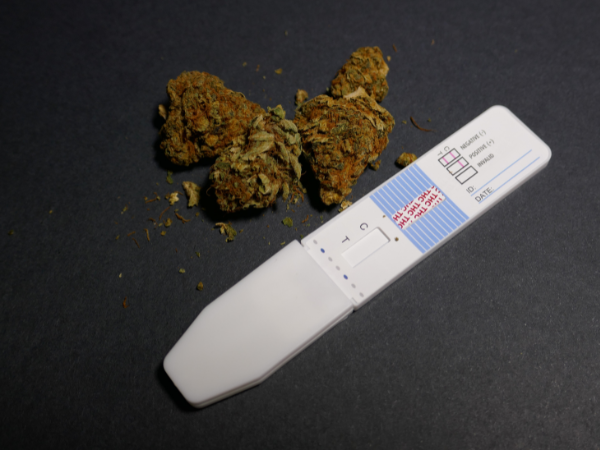Our professional team of advisors here at Drug Testing Kits UK, give the following guidelines on the different categories of illegal drug testing to the tens of thousands of companies, organisations, institutions, and medical facilities, across the length and breath of the UK and Southern Ireland. The most common types of illicit drug testing comprise:
Pre-Employment Illicit Drug Testing
Pre-employment illegal drug testing is a very important procedure which we highly recommend. It is an easy to set up, yet serious precaution, which can help prevent companies and organisations taking on wholly unsuitable staff. - Not to mention the consequent nightmares which can follow; and the sky high employment agency fees (which will still be payable, even if you later find that the new employee will have to be dismissed due to illicit drug use). Moreover, this unsuitable new member of staff scenario, could also involve substantial legal fees, and general disruption to the smooth running and productivity level of the department that the new employee has become part of.
Generally speaking, the Drug Testing Kit UK's advisors recommend that an assigned member of your HR department, or other responsible employee, administers one of our approved, highly accurate, immediate results, multiple-panel drug (and alcohol) tests, once you have made a conditional offer of employment to the applicant. Of note: all job applicants should be informed that they will have to undergo a mandatory illegal drug test, as a condition of their employment application; and that if their test proves positive, then they will not be offered employment.
It is however, crucial for companies to be mindful of the fact that applicants who take illegal drugs, can still pass their pre-employment drug test, if they pause their drug use some days prior to their assigned pre-employment drug screening appointment. To that end, you will only discover their drug misuse/addiction, when you carry out an unannounced on-the-spot drug test, later down the line, after they have been employed.
Random Drug Testing in the Workplace
This important sporadic category of drug testing, serves as an excellent deterrent. It is done on an unannounced basis, thus removing any complacency, and ensuring that employees who do covertly take illegal drugs, cannot mislead the company/organisation about their issue. In some instances, employers do not ask every member of staff to undergo a drug test. - They simply make a random selection on a percentage of the workforce, (which is often by computer). This could be as low as 10% or 20%.
Reasonable Suspicion Drug Testing
Also known as “probable-cause” testing, this procedure is employed in instances when more than one supervisor or manager, records evident signs of illicit drug use. - A scenario which potentially means that the member of staff in question, is violating the law, and the company's/organisation's rules and regulations relating to workplace conduct.
Of note, the advisors at Drug Testing Kits UK, strongly recommend that you compile an extensive list of 'Common Signs and Symptoms Linked to Illegal Drug Use in the Workplace.' - This can be easily achieved by looking at the scientifically referenced lists provided by Drug Testing Kits UK's Health Science Advisor on our comprehensive blog.

Post-Accident
As personal injury, injury to others, and damage to companies'/organisations' property, can be attributed to accidents, it is imperative to conduct a drug test (and alcohol) test in order to ascertain whether either of these two substances were a factor. Drug Testing Kits UK, understands the profound importance of corroborating objective criteria which will initiate a multi-panel drug and alcohol test post-accident, the details of which should be meticulously recorded. To that end, we recommend that you always have a ready supply of our latest cutting-edge approved drug and alcohol testing kits on hand for this 'test trigger' (ascertaining the trigger to the accident) .
Of note, there should be a set-up whereby more than one dedicated member of staff can be called upon to administer the test. This test may be needed, when for example, an employee has an accident whilst handling machinery that they regularly use; and that having such an accident would probably mean that they were not paying attention to what they were doing, and/or they were not in command of their mental faculties.
It is vital to be mindful that there is a drug & alcohol 'testing time frame,' which should be considered. - This is in order to ensure that the member of staff who has had the accident, still has detectable traces of drugs/alcohol in their system (if indeed they have taken any). Moreover, because different substances stay in an individual’s system for varying periods of time, the employee must be given the drug and alcohol test within 10 hours post-accident, so that the results are relevant.
In addition to the aforementioned, a number of companies and organisations 'test trigger' averted (closely missed) injuries and accidents. In this case, the drug & alcohol testing process is referred to to as 'post-incident.'
Periodic Drug Testing
Generally speaking, this form of drug (and alcohol) testing (which is often uniformly administered), is announced in advance of the testing day. Some of the thousands of companies, organisations and institutions that are supplied by Drug Testing Kits UK, conduct their illegal drug and alcohol testing once or twice a year; although in the case of some industries, this could be more frequent.
Returning to Work Drug Testing
This class of drug testing comprises a one-off, pre-arranged multiple drug or/and alcohol test, for members of staff who have previously tested positive at a workplace drug test, and since that time (which could be a extended period), have successfully completed the necessary treatment for their substance abuse, and are well enough to return to the work. - Albeit on the understanding that they no long have a substance issue.
Other Categories of Drug Testing
These can include:
-
Follow-up multiple drug testing (unannounced): this is carried out periodically after a member of staff has been previously tested positive
-
Post-rehabilitation multiple drug testing (unannounced):this is done periodically after a member of staff has successfully completed their rehabilitation
-
Blanket drug testing (unannounced): this category of substance testing involves all members of staff undergoing a multiple drug test



 03333 704 704
03333 704 704




